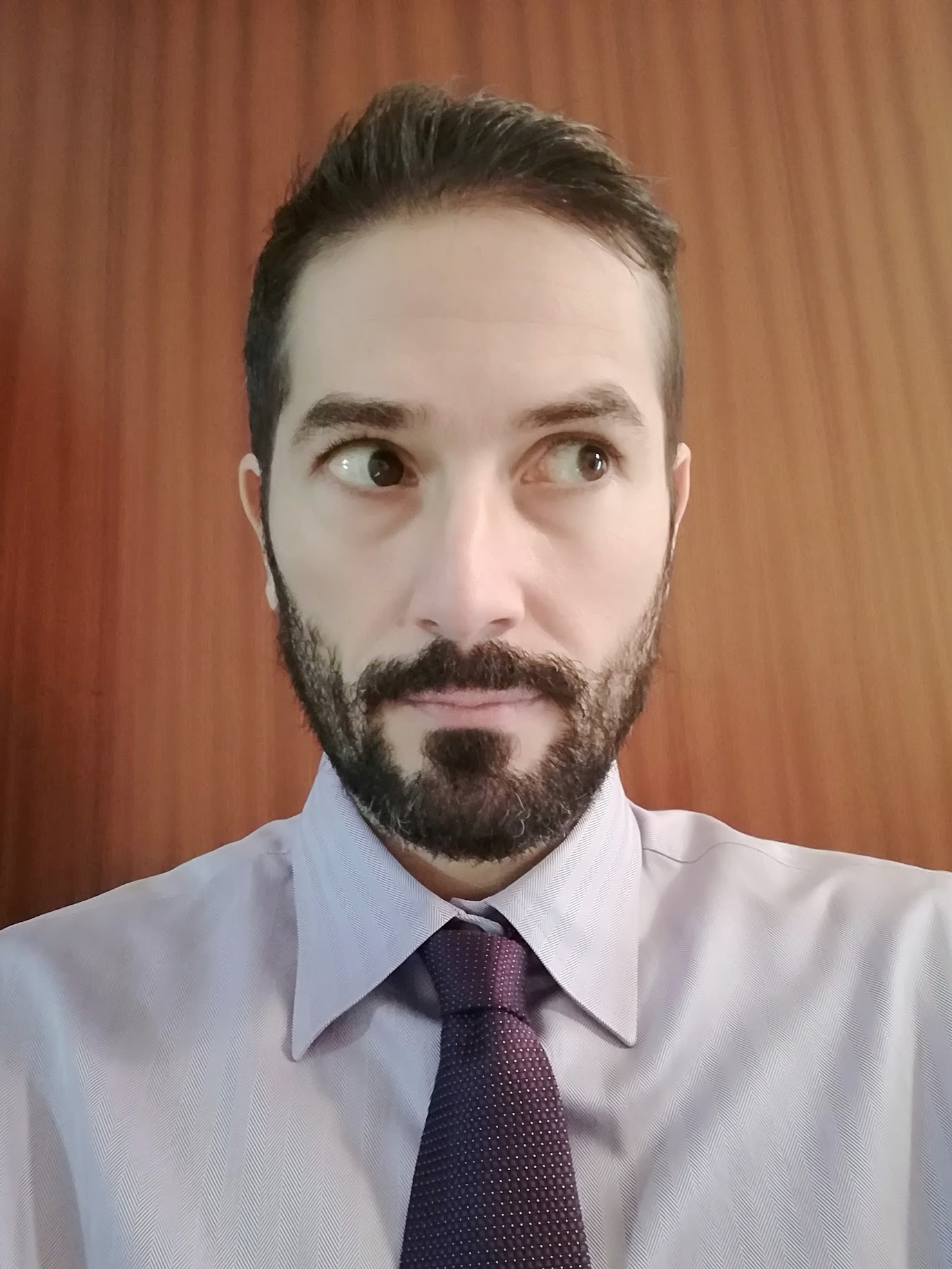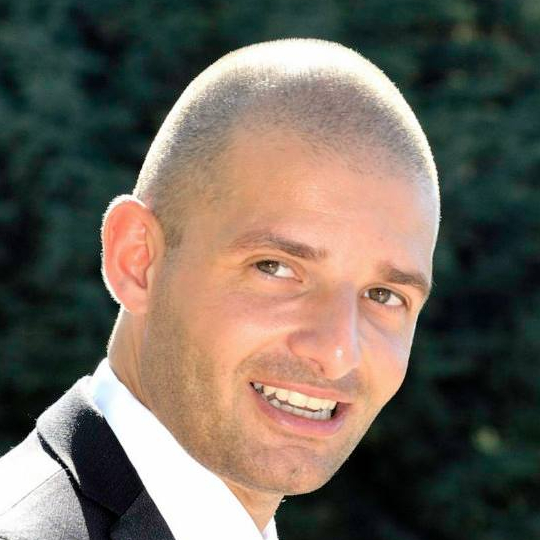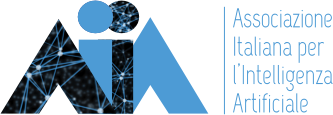Artificial Intelligence for Healthcare
Coordinatori
-

Francesco Calimeri
Università della Calabria
Coordinator
-

Mauro Dragoni
Fondazione Bruno Kessler
Coordinator
-

Fabio Stella
Università di Milano-Bicocca
Coordinator
Ambito e Obiettivi
The AI-HCare Group is a working group of the Italian Association for Artificial Intelligence (Associazione Italiana per l'Intelligenza Artificiale, AI*IA). The main goal of the group is to promote all kinds of activities in the field of Artificial Intelligence applied to healthcare, and foster collaborations among research groups, associations, institutions, industrial players and any kind of stakeholders, with a special focus on the Italian ecosystem.
Topics of interest cover all aspects of Artificial Intelligence and its application to significant (possibly real-world) problems in the medicine and healthcare domain, to any extent (prevention, diagnosis, prognosis, treatment, management, operations, etc.)
Iniziative ed Eventi
The AI-HCare working group organizes public events, such as the workshops HC@AIxIA in the context of the annual AIxIA conference.
Workshops
- [2024]: 3rd AIxIA Workshop on Artificial Intelligence For Healthcare (https://sites.google.com/unical.it/hcaixia2024)
- [2023]: 2nd AIxIA Workshop on Artificial Intelligence For Healthcare (https://sites.google.com/unical.it/hcaixia2023)
- [2022]: 1st AIxIA Workshop on Artificial Intelligence For Healthcare (https://sites.google.com/unical.it/hcaixia2022)
Journal issues
- Journal of Biomedical Informatics. Special issue on "learning from multiple data sources for decision making in health care". Full call available here.
- Progress in Artificial Intelligence. Special issue (see here) as post-proceedings of HC@AIxIA 2023.
AI & Health Seminars (2024)
The WG organizes a series of seminars (tentatively on a monthly basis) that aims at gathering researchers from academia, industry and medical centers for presenting, discussing and spreading the latest research results and ongoing works related to the application and impact of Artificial Intelligence in the healthcare domain, to the larger extent. The series covers a wide spectrum of topics, including theoretical and practical aspects, methodologies, technologies, and systems. Seminars will be online streamed, open access and delivered by national and international experts in medicine, biology, artificial intelligence, machine learning, from both academy, research centers and industry.
- 16 January 2024 - 04:30PM CET
- Speaker: Paolo Casali, University of Milano, Dipartimento di Oncologia ed Emato-Oncologia
- Title: The context around artificial intelligence in medicine: the model of oncology
- Abstract: Historically, the long-standing notion of “clinical freedom” has been outdated by the “evidence-based medicine” movement, based on clinical trials, the randomized clinical trial being held as ideal in demonstrating the causal role of new treatments in improving patient’s outcome. On the other hand, the increasingly prevailing principle of “autonomy” in clinical ethics and the explosion of molecular biology led to the idea of “personalized medicine”, based on both the “precise” partitioning allowed by molecular biology and the notion of patient-physician “shared decision-making”. This implies a tension between the “average patient” of highly “generalizable” randomized clinical trials and the needs of a personalized approach to individual patients. This seminar will try to provide an idea of how this state of affairs affects clinical oncology, a good model in today’s medicine. It is still difficult to say how the explosion of artificial intelligence may impact all this, from its use in clinical decision support systems to its exploitation to generate new evidence. Whether artificial intelligence will tend to complement or, alternatively, to substitute for randomized clinical trials should constitute a matter of interdisciplinary methodological discussion much more than it seems to be at the moment.
- Flyer: link
- Link for participating: webex link + details
- VIDEO: youtube link
- 12 February 2024 - 04:30PM CET
- Speaker: Igor Menghini, Software product Mgmt, Roche Diagnostics Solutions
- Title: Making sense of genetic markers: the role of NLP in building clinical decision support systems
- Abstract: Advances in genetic sequencing technology have armed clinicians with an incredibly powerful diagnostic tool that can detect thousands of genetic markers at once. This abundance of data however, poses a major challenge for clinicians: How to make sense of so many different parameters all at once? How to distinguish actionable markers from "noise"? And more importantly, how to do so in a world that keeps evolving with updated clinical guidelines, new therapies becoming available either in clinical trials or as approved options, and new discoveries constantly reshaping our understanding of diseases? To help with this daunting task, a new class of software systems is emerging: Genetic interpretation systems and clinical decision support systems. These solutions rely on the construction of a Knowledge-Base (KB) that captures, in a structured form, insights gleaned from scientific literature, clinical guidelines, therapy approvals, and clinicals trials. In order to keep these systems up to date, Natural Language Processing (NLP) is used to facilitate knowledge curation, update, and dissemination.
- Flyer: link
- Link for participating: webex link + details
- VIDEO: youtube link
- 08 March 2024 - 04:30PM CET
- Speakers: Andrea Palladino and Margherita Bodini, GSK (Siena, Italy)
- Title: Natural language processing and deep learning for genome classification
- Abstract: Machine learning classification of entire genome sequences would find many important applications in the bacteriology field. Among the most relevant, there are population genomics, antibiotic resistance monitoring, and outbreak investigation. Despite the prosperous application of AI to genetic sequences, especially in eukaryotes (Y. Ji et al. Bioinformatics (2021), Z. Avsec et al., Nature Methods (2021)), it is still challenging to use machine learning on the complete genome sequence of an organism. In this seminar we will show various approaches to apply Natural Language Processing (NLP) to biological sequences. We will guide attendants in understanding the relevance and some details of such methods and show practical examples of application to Neisseria meningitidis genome. We will describe our recent work on the classification of B/non-B capsules and on the identification of strains that colonize asymptomatically the nasopharynx (carrier) from those that cause meningitidis or sepsis (disease), comparing with the state of the art methodology. Finally, we will show how deep learning can be applied to the same scopes, with practical examples.
- Flyer: link
- Link for participating: webex link + details
- VIDEO: available after the seminar (waiting for privacy and copyright issues)
- 17 April 2024 - 04:30PM CET
- Speakers: Aldo Marzullo and Saverio D'Amico, IRCSS Humanitas Research Hospital (Rozzano, Milan, Italy)
- Title: Health digital twins. Artificial Intelligence to support clinical decision making in hematology
- Abstract: Rare diseases are life-threatening or chronically debilitating diseases which affect fewer than 5 in every 10000 people in the EU. Most rare diseases lack effective treatments representing an enormous unmet medical need. The major challenge is to understand rare-disease mechanisms better and ensure that research and innovation are effectively translated into new diagnostics and treatments. Personalized or precision medicine combines established clinical-pathological parameters with advanced profiling to create innovative diagnostic, prognostic, and therapeutic strategies. This approach is relevant in the context of rare hematologic diseases, where additional information from transcriptomics (and other omic features), as well as from digitized images, may improve the clinical decision-making process and the choice of optimal therapy or treatment. Health digital twins are virtual representations of patients generated from historical multimodal patient data, as clinical, genomics, physiology, images, treatment, outcomes, physics, quality of life (QOL) and wearables. They can improve diagnosis and prognosis, predict treatment in a specific patient population and create virtual scenarios to support clinical decision-making. Health digital twins implement data-driven Artificial Intelligence (AI) and Machine Learning (ML) methods, trained on patients' longitudinal data, to build robust predictive models that integrate multiple information to address unmet clinical needs. AI-based models integrate multi-layer information and simulate the behavior and prognosis of the disease in the individual patient, allowing a detailed understanding of the disease and treatment effects, and defining the patient’s individual risk. The impact of health digital twins can be evaluated in several areas: 1) improve patient outcomes by using specific patient information to identify the most appropriate treatment; 2) reduce healthcare costs with more targeted and effective therapies; 3) accelerate clinical and pharmaceutical research; 4) deal with ethical and privacy issues, detaching the link between people and the value of data. Despite innovative AI technology being extensively applied to different medical fields, health digital twins represent a novel and innovative approach that will pave the way for effective personalized medicine. The exploitation of this technology will enable the creation of high performance predictive models, supporting clinical research and decision making.
- Flyer: link
- Link for participating: webex link + details
- VIDEO: link
- 09 May 2024 - 04:30PM CET
- Speaker: Giovanni Parmigiani, Dana Farber Cancer Institute, Harvard T.H. Chan School of Public Health (MA, USA)
- Title: Validation and Replicability of Prediction Algorithms in Oncology
- Abstract: This lecture considers replicability of the performance of predictors across studies. We suggest a general approach to investigating this issue, based on ensembles of prediction models trained on different studies. We quantify how the common practice of training on a single study accounts in part for the observed challenges in replicability of prediction performance. We also investigate whether ensembles of predictors trained on multiple studies can be combined, using unique criteria, to design robust ensemble learners trained upfront to incorporate replicability into different contexts and populations. In a linear regression setting, we show analytically and confirm via simulation that merging yields lower prediction error than cross-study learning when the predictor-outcome relationships are relatively homogeneous across studies. However, as heterogeneity increases, there exists a transition point beyond which cross-study learning outperforms merging. We provide analytic expressions for the transition point in various scenarios and study asymptotic properties.
- Flyer: link
- Link for participating: webex link + details
- VIDEO: link
- 17 June 2024 - 04:30PM CET
- Speaker: Luca Neri, Senior Director, GMO Data Science Lead - Clinical Advanced Analytics – AP, LATAM, EMEA region, Fresenius Medical Care Italia S.p.A.
- Title: AI in medicine: from the conceptualization to its clinical application. Opportunities & Challenges
- Abstract: The path from brilliant ideas to their concrete embodiment into a working application it’s a fascinating (and sometimes exhausting) journey of opportunities and challenges. We will provide an overview of why medicine needs AI. We will further explore the challenges we encounter throughout the development cycle and how we have tried to overcome them. From demand analysis, to model development, through the hurdles of current global regulatory landscape, market access and health-technology assessment, we will discover that a model in medicine is not just a model. It means encoding medical knowledge in a way that is legally usable (and desirable) by doctors, nurses and patients in a highly regulated sector.
- Flyer: link
- Link for participating: webex link + details
- VIDEO: link
- 11 July 2024 - 04:30PM CET
- Speaker: Alberto Mussetti, Hematology Department, Institut Català d'Oncologia (Barcelona, Spain)
- Title: The Quantum Leap: AI and Telemedicine Unveiling the Next Frontier in Allogeneic Hematopoietic Stem Cell Transplantation
- Abstract: This conference explores the transformative intersection of Artificial Intelligence (AI) and Telemedicine in the realm of Allogeneic Hematopoietic Cell Transplantation (allo-HCT), heralding a new era in healthcare. The discussion delves into the potential of these advanced technologies to reshape the landscape of allo-HCT, promising enhanced accessibility, efficiency, and patient outcomes. The conference begins by examining how AI algorithms are revolutionizing donor matching processes and patient assessments, refining the selection of recipients and minimizing complications. Furthermore, the integration of telemedicine platforms facilitates remote patient monitoring, enabling real-time tracking of vital health indicators and facilitating timely interventions. As AI and telemedicine converge to reshape the landscape of allo-HSCT, this discussion serves as a pivotal exploration into the advantages and limits of this transformative journey.
- Flyer: link
- Link for participating: webex link + details
- VIDEO: link
- 16 September 2024 - 04:30PM CET
- Speaker: Giuseppe Jurman, Head of DSH (Data Science for Health) Unit, Fondazione Bruno Kessler – FBK (Trento, Italy)
- Title: Generative AI in sequencing: enhancing models by synthetic omics data
- Abstract: Synthetic data have recently gained momentum in several scientific areas as an effective solution to dealt with several aspects of data poverty and missingness. In translational medicine, biomedical images and EHR data have been the first to benefit from synthetic augmentation techniques through generative AI algorithms such as GANs or, more recently, Diffusion-like models. Extension of these methods to omics data poses further challenges due to the nature of the signal, such as the need of taking into account sample variability and multilevel omics coherence. In this talk, we will present an overview of the state-of-the-art of the synthetic data in the omics universe, including the generative methodologies, the future perspectives, and the related caveats, concluding with some applicative use cases. (joint work with Marco Chierici and Silvia Menchetti)
- Flyer: link
- Link for participating: webex link + details
- VIDEO: link
- 21 October 2024 - 04:30PM CET
- Speaker: Teresa Calimeri, MD PhD, Senior Staff Physician Lymphoma Unit, IRCCS San Raffale Hospital (Milan, Italy)
- Title: AI in PCNSL: a diagnostic and therapeutic journey
- Abstract: The integration of Artificial Intelligence (AI) in the field of oncology represents one of the most significant challenges of the near future. Recent studies indicate that radiomic features can assist radiologists in addressing diagnostic and prognostic healthcare challenges, potentially ushering in a new era of personalized medicine. In this seminar, we will discuss our experience with primary central nervous system lymphoma (PCNSL) as a case study. Initially, we will delineate the constraints of the current diagnostic and prognostic tools. Subsequently, we will illustrate the application of a radiomics-based machine learning model and a deep learning (DL) approach to enhance the precision of outcome prediction. Furthermore, we will present our ideas on the possible application of these models in the treatment path of patients, along with the potential integration of a composite genetic and radiomic (radiogenomics) risk-adapted strategy. This strategy could be studied, validated, and routinely used during PCNSL treatment. Through case studies and recent research findings, this seminar aims to provide a comprehensive overview of the current state and future potential of AI in PCNSL management. (joint work with Nicoletta Anzalone, Head of the Neuroradiology Unit of Advanced Vascular Imaging, IRCCS San Raffale Hospital, Milan, Italy, and Michela Destito, Department of Experimental and Clinical Medicine, University “Magna Graecia” of Catanzaro, Catanzaro, Italy).
- Flyer: link
- Link for participating: webex link + details
- VIDEO: link
Other Activities
-
MAPS/LIST of the AI-HealthCare groups in Italy (so to foster cooperation and reduce fragmentation).
- Work in progress
-
Connections with other associations for AI-HealthCare are welcome.
- Drop us a note at hc-aixia@googlegroups.com
Membri e Affiliati
Current Members
- Francesco Calimeri, Università della Calabria
- Mauro Dragoni, Fondazione Bruno Kessler
- Fabio Stella, Università degli Studi di Milano - Bicocca
- Diana Marisol Abrego Guandique, Magna Graecia University of Catanzaro
- Carlo Adornetto, University of Calabria
- Marco Agosto, Città della Salute e della Scienza di Torino, Università di Torino
- Signoroni Alberto, Università degli Studi di Brescia
- Gianluca Apriceno, Fondazione Bruno Kessler
- Riccardo Bellazzi, University of Pavia
- Alice Bernasconi, University of Milano-Bicocca, Italy
- Laura Botta, Evaluative Epidemiology Unit, Department of Epidemiology and Data Science, Fondazione IRCCS Istituto Nazionale dei Tumori, Milan, Italy;
- Andrea Brunello, University of Udine
- Dario Callegaro, Fondazione IRCCS Istituto Nazionale dei Tumori-Milano
- Davide Cangelosi, IRCCS Istituto Giannina Gaslini
- Stefano Cavalieri, Fondazione IRCCS Istituto Nazionale dei Tumori-Milano
- Giacomo Cavallaro, NICU, Fondazione IRCCS Ca' Granda Ospedale Maggiore Policlinico, Milano
- Davide Chicco, Università di Milano-Bicocca
- Carlo Alfredo Clerici, University of Milano-Bicocca, Italy
- Monica Consolandi, Fondazione Bruno Kessler
- Chiara Corti, Istituto Europeo di Oncologia (IEO)/University of Milan & Dana-Farber Cancer Institute/Harvard University
- Stefania Costantini, Università degli Studi dell'Aquila
- Paolo D'Elia, DGS SpA
- Luigi Di Biasi, Università degli Studi di Salerno
- Stefano Ferretti, University of Urbino Carlo Bo
- Alessia Francese, Dipartimento Attività Integrate Ricerca Innovazione, Azienda Ospedaliera-Universitaria di Alessandria
- Francesca Gasparini, Università di Milano-Bicocca
- Daniele Germano, Sapienza University of Rome
- Alessandro Gronchi, Fondazione IRCCS Istituto Nazionale dei Tumori-Milano
- Lisa Licitra, Fondazione IRCCS Istituto Nazionale dei Tumori-Milano
- Renan Lirio de Souza, Fondazione Bruno Kessler - FBK
- Marco Maratea, University of Calabria
- Costanza Massarino, Dipartimento Attività Integrate Ricerca Innovazione, Azienda Ospedaliera-Universitaria di Alessandria
- Igor Menghini, Roche Diagnostics S.p.A.
- Rosalba Miceli, Fondazione IRCCS Istituto Nazionale dei Tumori-Milano
- Sara Montagna, Università degli Studi di Urbino - DiSPeA
- Giovanna Nicora, University of Pavia
- Alessio Polymeropoulos, Fondazione IRCCS Istituto Nazionale dei Tumori-Milano
- Luigi Portinale, University of Piemonte Orientale
- Salvatore Provenzano, Fondazione IRCCS Istituto Nazionale dei Tumori-Milano
- Niccolò Rocchi, Università degli Studi di Milano - Bicocca
- Luca Romeo, University of Macerata, Department Economics and Law
- Annalisa Roveta, Dipartimento Attività Integrate Ricerca Innovazione, Azienda Ospedaliera-Universitaria di Alessandria
- Francesco Saccomanno, Università della Calabria
- Leonardo Sanna, Fondazione Bruno Kessler - FBK
- Christel Sirocchi, University of Urbino
- Francesco Stranieri, Polytechnic of Turin/University of Milano-Bicocca
- Manuel Striani, University of Piemonte Orientale
- Giorgio Terracina, Università della Calabria
- Gabriele Tinè, Fondazione IRCCS Istituto Nazionale dei Tumori-Milano
- Annalisa Trama, Fondazione IRCCS Istituto Nazionale dei Tumori-Milano
- Alberto Traverso, IRCCS San Raffaele Hospital, Milano
- Francesca Ugo, Dipartimento Attività Integrate Ricerca Innovazione, Azienda Ospedaliera-Universitaria di Alessandria
- Paolo Verderio, Fondazione IRCCS Istituto Nazionale dei Tumori-Milano
- Alessio Zanga, University of Milano - Bicocca
- Riccardo Zese, University of Ferrara
(last update: oct 2024)
HOW TO JOIN
To join, two steps are necessary, to be followed in sequence:
- (mandatory): be a member of AIxIA (or register if not member yet). To complete the procedure, just follow the procedure on the AIxIA website (https://aixia.it/en/diventa-socio/).
- (mandatory): fill in the form available at https://bit.ly/hc-aixia-join.
The form is necessary to be included in the working group's mailing list and to be informed and contacted about the working group's activities. Special case: for healthcare professionals working at institutions, hospitals, research centers, and such, AIxIA association is mandatory for AT LEAST one member. Other members can be non-AIxIA members, but they must be part of the same institution. In this case, the membership form must be filled in by the AIxIA member, and the names of the other members must be explicitly specified by a proper email to the group coordinators (see contacts below).
If you're interested in joining the group, and for any matter, plese contact us at hc-aixia@googlegroups.com.
